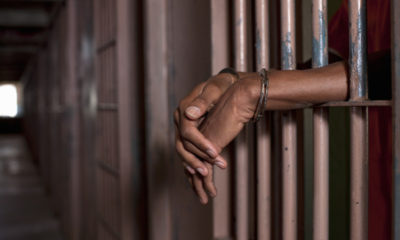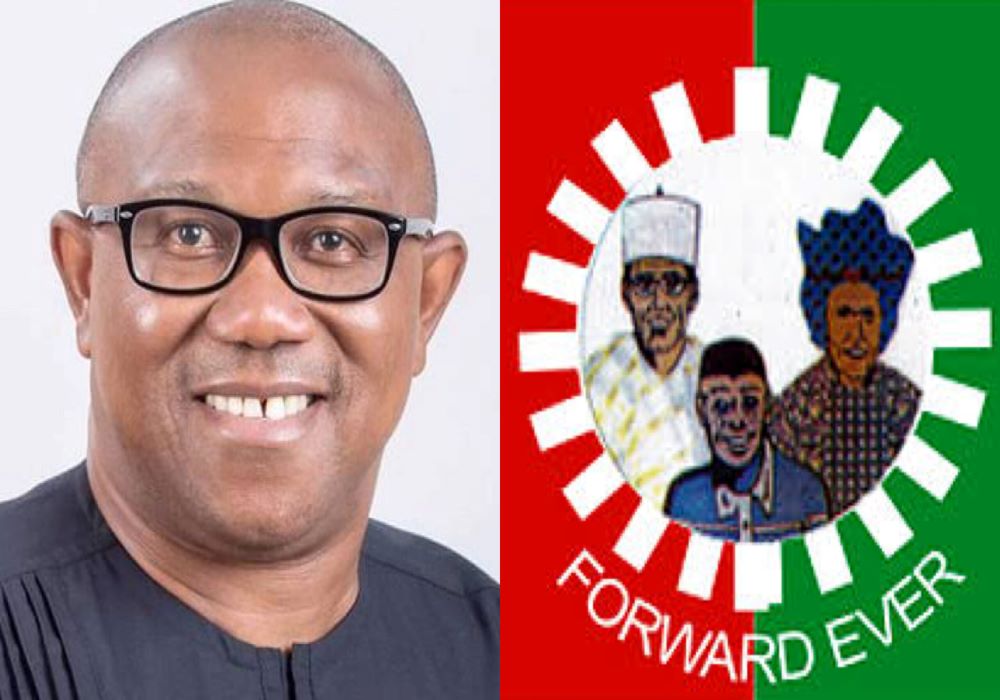NEWS
Bills Buhari Failed To Sign Before Leaving Office
Former President Muhammadu Buhari’s eight-year administration came to an end on May 29, marking the beginning of President Bola Tinubu’s era.
When Buhari assumed power in 2015, he was regarded as a messianic figure who would rescue the country from its downward spiral. With his background as a former military head of state, his ascension was accompanied by promises of change and a better future than the previous administration under Goodluck Jonathan.
While Buhari claimed that his government had fulfilled most of its campaign promises, there are divided opinions on whether his administration truly outperformed its predecessors and stayed true to the people.
While some hailed Buhari’s administration for signing the 2022 Electoral Act and constitutional amendments related to electricity distribution, there was dissatisfaction with the exclusion of other crucial legislative bills passed by the National Assembly.
Notable among the bills left unsigned were the Nigerian Peace Corp (Establishment) Bill, which aimed to legally establish the Peace Corps as a government parastatal, potentially providing employment opportunities for many Nigerians.
Additionally, the Sexual Harassment of Students in Tertiary Educational Institutions (Prohibition) Bill sought to protect students from harassment and proposed strict penalties for offenders.
Another bill was the creation of the Office of the Accountant-General of the Federal Government, aiming to separate it from the Office of the Accountant-General of the Federation.
Furthermore, alteration bills concerning the powers of the National and State Houses of Assembly to summon the President and Governors and to provide for State of the Nation and State of the State Addresses were also left unsigned.
In an interview, the President of the Civil Rights Realisation and Advancement Network (CRRAN), Olu Omotayo, expressed his disappointment with the wasted financial and human resources invested in passing these bills.
He criticized both the outgoing President and the National Assembly for their failure to prioritize and enact these bills promptly. Omotayo argued that if the National Assembly had recognized the importance of these bills, they should have been passed in a timely manner, allowing for re-passage if the President withheld assent.
He further criticized the lack of a radical approach from the National Assembly, asserting that it deprived them of the necessary power to hold the executive branch accountable.
NEWS
BREAKING: HURIWA Urges Supreme Court To Dispense Justice Quick On Rivers Emergency Rule

It is the view of the pro-democracy and civil rights advocacy group, the Human rights Writers Association of Nigeria (HURIWA) that the apex court has been presented with an opportunity to redeem the waning public image of the Nigerian judiciary by the emergency rule declared in Rivers State.
Biztellers reports that the matter challenging President Bola Ahmed Tinubu’s proclamation of a state of emergency and the suspension of a sitting Governor of Rivers State, Siminilayi Fubara was instituted by some Nigerian governors.
The HURIWA, in a statement in Abuja on Wednesday by its National Coordinator, Comrade Emmanuel Onwubiko, noted that the Nigerian judiciary has never witnessed the kind of downturn, loss of public confidence and trust in the integrity to such a terrible extent that over 98 percent of Nigerians believed that President Tinubu has effectively pocketed the judiciary given that he was instrumental to the phenomenal rise of the current chief justice of Nigeria who was the justice that pronounced the then APC governorship candidate Hope Uzodimma who came 4th in the Imo State election as the winner thereby displacing the governor Emeka Ihedioha.
Ihedioha was elected on the platform of the Peoples Democratic Party (PDP).
ALSO READ: JUST IN: FEC Moves For Total, Continual Naira-For-Crude Deal
According to Onwubiko, besides, the Supreme Court’s recent highly biased and openly partisan judgment read by Justice Emmanuel Agim lambasting Governor Fubara and stopping the Central Bank of Nigeria from remitting the rightful allocations from the Federation Account to the coffers of the Rivers State government – a politically motivated ruling that led to the destabilisation of democratic structures of Rivers State including the unconstitutional suspension of Governor Fubara by President Tinubu.
The Rights group added that the inability of the Supreme Court to sanction Justice Emmanuel Agim for openly fraternising with the FCT Minister, Nyesom Wike at the recently held convocation ceremony of the University of Calabar shows the complicity and compromise with the executive arm of government by the Nigerian judiciary whose hierarchy is domiciled in the Supreme Court.
The HURIWA, therefore, affirmed that the time has now come for the world to see whether or not it is factually accurate the conspiracy theory that President Tinubu has the Nigerian judiciary in his pockets just as the Rights group said the decision by the Supreme Court of Nigeria in this matter brought by 11 governors of the PDP with a specific request for interpretation of the Constitution to ascertain if an elected president with same constitutional ways of impeachment just like the elected governor of the states, has the powers to unseat or unilaterally suspend a sitting governor like it was done to Gov Fubara.
Onwubiko maintained that the verdict on this case would be a verdict on the integrity of the Supreme Court of Nigeria and would be the last stroll that would break the camel’s back in terms of trusting the judiciary.
The HURIWA noted that the governors, in the suit marked: SC/CV/329/2025, predicated the summons on eight grounds.
The plaintiffs in the suit are Adamawa, Enugu, Osun, Oyo, Bauchi, Akwa Ibom, Plateau, Delta, Taraba, Zamfara, and Bayelsa States.
The plaintiffs urged the Supreme Court to determine if the President had the power to suspend a democratically elected structure of a state.
They also asked the apex court to determine if the way and manner the President pronounced the state of emergency declaration in Rivers State was not in contravention of the 1999 Constitution.
Amongst others, all 11 governors in the suit, filed through the states’ Attorney Generals, prayed the court to determine the following, “Whether upon a proper construction and interpretation of the provisions of Sections 1(2), 5(2), 176, 180, 188 and 305 of the Constitution of the Federal Republic of Nigeria 1999, the President of the Federal Republic of Nigeria can lawfully suspend or in any manner whatsoever interfere with the offices of a Governor and the Deputy Governor of any of the component 36 States of the Federation of Nigeria and replace same with his own unelected nominee as a Sole Administrator, under the guise of, or pursuant to, a Proclamation of a State of Emergency in any of the State of the Federation, particularly in any of the Plaintiffs States?
The HURIWA expressed belief that there is no provision of the extant Grund Norm that authorises the sitting President to suspend a sitting governor, and therefore reminded the Chief Justice of Nigeria, Kekere-Ekun that Nigerians will judge the Supreme Court and the judiciary by the kind of pronouncement the Supreme Court eventually makes in the aforesaid matter, especially with regards to the decision of the president to suspend a sitting governor.
“The judgment in this matter will determine whether Nigerians will support constitutional democracy or conclude that the judiciary has endorsed totalitarianism and dictatorship,” it added.
NEWS
Zamfara Assembly Member Dies In His Sleep
The Zamfara State House of Assembly is in mourning following the sudden death of Hon. Aminu Ibrahim Kasuwar-Daji, who represented the Kaura Namoda South Constituency.
The lawmaker passed away in his sleep on Wednesday morning.
In an official statement, the All Progressives Congress (APC) in Zamfara expressed deep sorrow over the lossloss.
READ ALSO: NAF Probes Alleged Civilian Casualties In Zamfara Airstrike
Yusuf Idris, the party’s Publicity Secretary, described the late lawmaker as “a dedicated, honest, and God-fearing individual who served both his constituency and humanity with passion.”
The APC extended its condolences to the family of the deceased, the people of Kaura Namoda South, and members of the Zamfara State Assembly.
The statement concluded with prayers for the deceased, asking Allah to grant him Jannatul Firdaus and provide his loved ones with the strength to bear the loss.
Hon. Kasuwar-Daji will be laid to rest today at 3:00 pm in his hometown of Kasuwar-Daji, Kaura Namoda Local Government Area.
International News
Niger Drops French, Declares Hausa As New National Language
In a bold move to redefine its national identity and sever ties with its colonial past, Niger’s ruling junta has officially adopted Hausa as the country’s national language, replacing French.
A new national charter, published in a special edition of the government’s official journal on March 31, stated: “The national language is Hausa” and “the working languages are English and French.”
READ MORE: Woodhall Capital Foundation Trains Nigeria’s Captains Of Industry
The decision is part of sweeping reforms introduced by the military government that took power in July 2023 after ousting President Mohamed Bazoum. Since then, the junta has taken deliberate steps to distance itself from France, including the expulsion of French troops and the renaming of streets and landmarks that bore French names.
Hausa is the most widely spoken language in Niger, particularly in the regions of Zinder, Maradi, and Tahoua. By contrast, French is spoken by only about 13 percent of the population—just over three million people in a country of 26 million.
The charter also designates nine other local languages—Zarma-Songhay, Fula, Kanuri, Gourmanche, Arabic and others—as the “spoken languages of Niger.”
The reforms stemmed from a national conference held in February, during which the junta was granted broader powers, including a five-year extension for General Abdourahamane Tiani to remain as head of state.
Niger, along with Mali and Burkina Faso—also under military rule—recently withdrew from the Organisation Internationale de la Francophonie (OIF), a cultural and political body representing French-speaking countries.



















